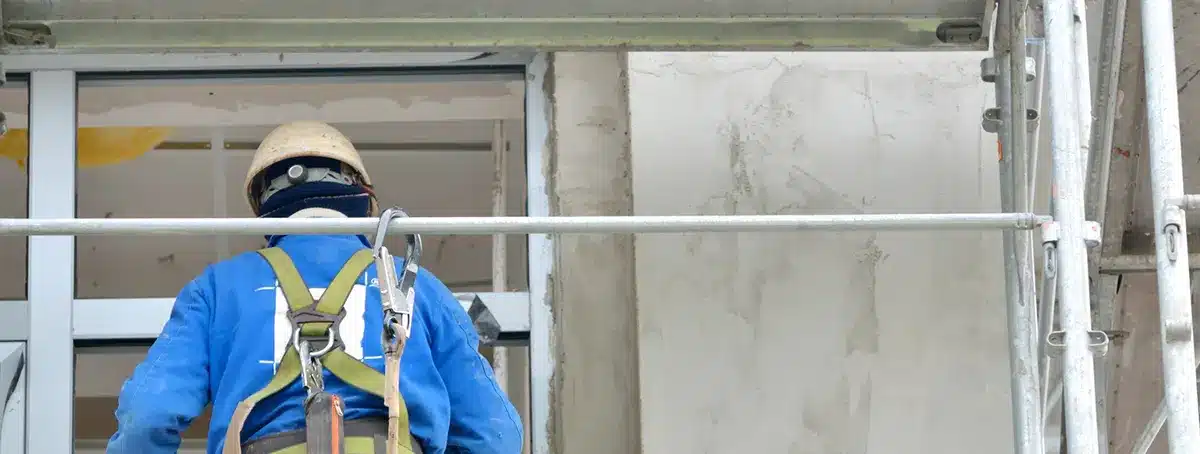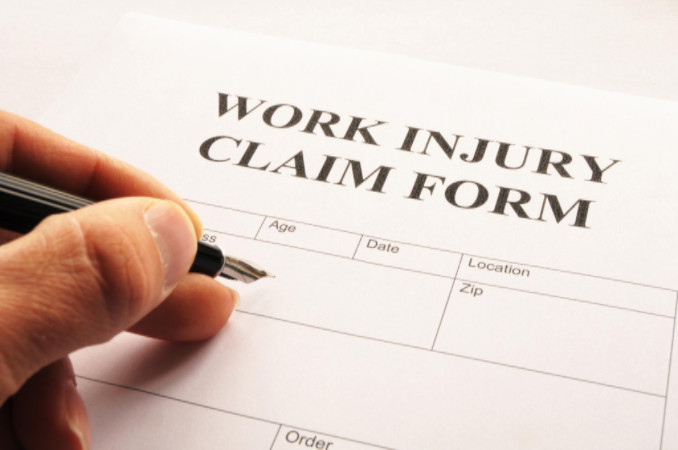
Colorado Workers’ Comp for Ladder & Scaffolding Accidents
Learn how to maximize your workers’ comp benefits after an accident with ladders or scaffolding in Denver
Colorado workplace accidents involving ladders and scaffolds pose significant risks to workers’ safety. From falls from heights to being struck by falling objects, these incidents can result in severe injuries, including fractures, head trauma and even fatalities.
Fortunately, injured workers in Colorado may be entitled to workers’ compensation benefits to help cover medical expenses and lost wages due to these accidents. Understanding your rights and how to navigate the workers’ compensation process is crucial to ensuring you receive the support and benefits you deserve.
This article will discuss the dangers associated with ladder and scaffold accidents in Colorado workplaces and explain what workers need to do to recover maximum compensation for their injuries.
How common are ladder and scaffold accidents at work?
According to the Occupational Safety and Health Administration (OSHA), approximately 65% of the construction industry, or roughly 2.3 million workers, work on scaffolds.
OSHA estimates that about 4,500 injuries and 50 fatalities could be prevented annually if appropriate safety measures were in place to avoid scaffolding accidents. This could save American businesses around $90 million in lost workdays.
Ladders are also a significant source of injuries and fatalities for U.S. workers. The U.S. Bureau of Labor Statistics (BLS) reported that in 2020 alone, there were 22,710 injuries and 161 deaths linked to ladder accidents at work.
Occupations involving installation, maintenance and repair reported the most injuries (5,790), followed by the construction and extraction industries, with 5,370 injuries reported.
What is the most common accident to occur when a worker uses scaffolding?
The most common accident that occurs when workers use scaffolding is falls from heights, which can happen due to a lack of proper fall protection systems or unsafe scaffold construction. Other frequent incidents involve being struck by falling objects, scaffold collapses, and electrocution risks from proximity to power lines.
Ensuring proper scaffold setup, maintenance, and use of safety equipment like guardrails and personal fall arrest systems are crucial to preventing these accidents.
What injuries are commonly caused by ladder and scaffold accidents?
Ladder and scaffold accidents commonly result in various injuries, ranging from minor to severe. These injuries can include:
- Electrocution. When ladders or scaffolds come into contact with electrical sources, electrocution injuries like burns and even cardiac arrest can result, which can lead to death.
- Back injuries. Injuries like herniated discs or even severe spinal cord injuries that lead to paralysis are common after falls from heights.
- Head injuries. These include concussions and traumatic brain injuries (TBIs), like brain bleeds, resulting from falls or being struck by falling objects.
- Fractures. Broken bones, especially in the arms, wrists and legs, are common if a worker slips off a ladder or a scaffold collapses.
- Sprains and strains. These can occur due to falls or sudden movements to avoid falling, particularly in the ankles, wrists and knees.
- Internal injuries. Internal bleeding or damage to vital organs can be caused by the impact of a fall or being hit by an object.
Safety measures, including the use of personal protective equipment (PPE), proper training and adherence to safety protocols, are essential to minimize these risks.
Does Colorado Workers’ Compensation
Cover All Injuries?
Learn which injuries and occupational diseases are and aren’t covered under Colorado workers’ comp.
What happens if you fall off a ladder at work?
If you fall off a ladder at work in Colorado and you are an employee (not an independent contractor), you’re generally entitled to workers’ compensation benefits. Workers’ compensation is a type of insurance that employers carry to provide financial and medical benefits to employees who are injured on the job.
One of the fundamental principles of workers’ compensation is that it is no-fault insurance. This means you may recover benefits even if no one was negligent and your employer was not at fault. Similarly, you are still eligible for benefits even if the accident was due to your own mistake.
However, workers’ compensation also acts as an exclusive remedy. In most cases, you cannot sue your employer for injuries if you’re receiving workers’ compensation benefits. This system is designed to protect both employees and employers—employees get relatively quick access to benefits without going through a lengthy legal process, and employers are protected from potentially costly lawsuits.
To obtain these benefits, injured workers must take the following steps:
- Report the injury. Notify your employer about the fall and your injuries as soon as possible. This should be done within 10 days, but it’s best to do it immediately if possible.
- Seek medical attention. Your health should always be your top priority, and prompt medical care is also important for your workers’ compensation claim. Please note that unless it’s an emergency, you may be required to see a physician approved by your employer to be covered by workers’ comp.
- Employer informs their insurer. Your employer has a 10-day window to report the incident to their insurance company after you notify them of your injury. Subsequently, you should expect a response regarding the acceptance or denial of the claim within 20 days.
If you’re unsure about the process or your rights, or if your claim is denied, it may be beneficial to consult with a workers’ compensation attorney who can guide you through the process and ensure you receive the full benefits you’re entitled to.
What workers’ comp benefits am I entitled to after a ladder- or scaffold-related injury at work?
After a ladder- or scaffold-related injury at work, you may be entitled to various workers’ compensation benefits, depending on the severity of your injury and its impact on your ability to work.
Below are some common benefits you may be eligible for:
- Medical expenses. Workers’ compensation typically covers all reasonable and necessary medical treatment related to your injury. This includes doctor’s visits, hospitalization, surgery, prescription medications, physical therapy, and any other medical services or supplies deemed necessary for your recovery.
- Vocational rehabilitation. Workers’ compensation may cover vocational rehabilitation services to help you return to work or retrain for a new job if your injury prevents you from performing your previous job duties.
- Lost wages. If your injury prevents you from working, you may be entitled to wage replacement benefits. Typically, this is two-thirds of your average weekly wage, intended to compensate for the income you cannot earn while recovering from your injury. The exact amount and duration of these benefits vary according to the type and severity of your injury.
- Death benefits. If a ladder or scaffold-related injury results in the death of a worker, their dependents may be entitled to death benefits, including compensation for funeral expenses and ongoing financial support.
To ensure you get the maximum benefits you’re entitled to, especially after a severe or catastrophic work injury, it’s highly recommended that you discuss your case with an experienced workers’ compensation attorney before accepting a settlement offer from the insurance company.
Looking for the best Colorado work injury attorney after a ladder or scaffold accident at work?
If you or a loved one suffered a serious injury or fatality after a ladder or scaffold accident at work, navigating the legal complexities of workers’ compensation can feel overwhelming.
At Babcock Tucker, we understand the physical, emotional and financial toll that such accidents can take on individuals and families. That’s why our compassionate team of experienced Denver work injury attorneys is here to provide personalized guidance and support throughout the process.
Let us help you secure the compensation and justice you deserve while you focus on healing and rebuilding your life. Contact us today for a free consultation.





